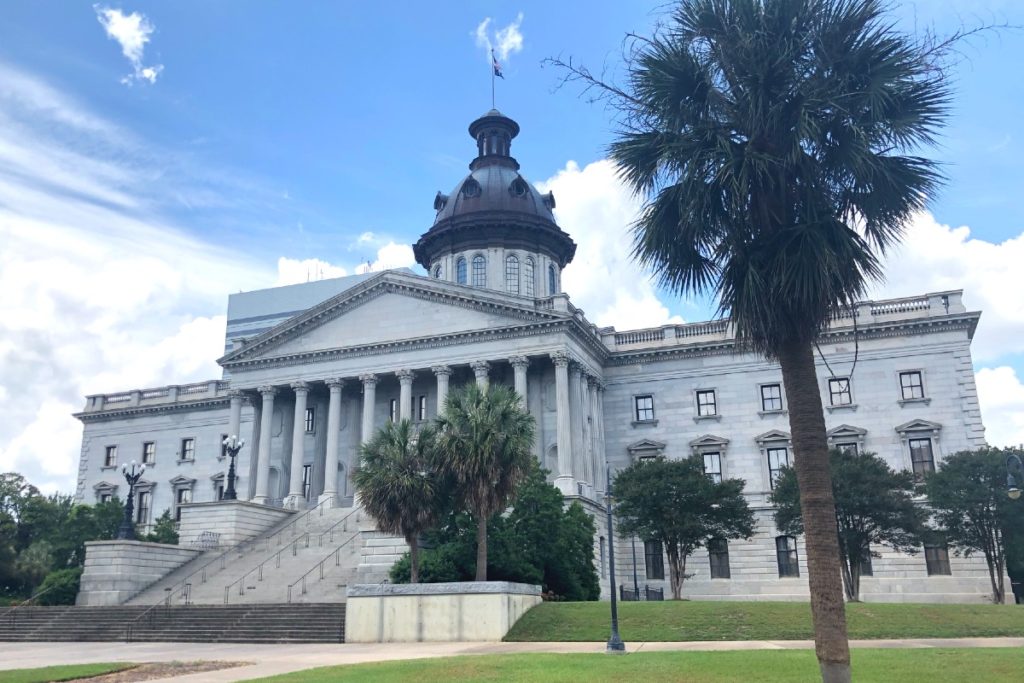
Referring to the ideological conflicts that occasionally roiled his administration, President Ronald Reagan once winkingly noted that “sometimes our right hand doesn’t know what our far-right hand is doing.”
In 2024, Republican leaders in the South Carolina Statehouse could have offered much the same observation, as they struggled to find party unity on major legislation involving taxes, guns, hate crimes and more.
And it’s with those legislative hits and misses — some surprising, all controversial — that we begin our wrap-up of S.C.’s biggest statewide stories of 2024.
What passed — and what didn’t
After a bit of pushing and shoving between the two chambers, the General Assembly in June passed a $14.5 billion state budget. The plan cut income taxes, invested in roads and bridges, raised teacher pay, froze college tuition and fully funded a new medical school building at the University of South Carolina and a veterinary college at Clemson University.
Also becoming law in 2024 were a ban on the use of state dollars for gender transitions, broad expansion of the right to carry a handgun without a permit, new limits on bail for repeat violent offenders and minor changes to the state’s judicial selection system.
On the other side of the ledger, the state Senate allowed a House-passed hate crimes bill to die without a vote for the second session in a row. At the time, critics noted Senate leaders opted to allow a single member’s hold on the bill to stand rather than forcing an override vote to bring it to the floor. As a result, South Carolina remains one of only two states in the nation without a hate crimes law.
Other major failures in 2024 included liquor liability reform, limited medical marijuana legalization, health agency consolidation and a utility-friendly energy bill that would have incentivized increased fossil fuel production.
With more than 800 bills already prefiled in advance of the 2025 session, members will return for new business in January.
The return of the death penalty
 For the first time in more than a decade, the state of South Carolina took a human life in 2024. In fact, it took two.
For the first time in more than a decade, the state of South Carolina took a human life in 2024. In fact, it took two.
On Sept. 20, Freddie Owens was executed by lethal injection for the 1997 murder of Greenville convenience store clerk Irene Graves. And on Nov. 1, Richard Moore was put to death in the same manner for the murder of Spartanburg gas station employee James Mahoney in 2001.
The long suspension of Palmetto State executions began in 2011, after drug companies refused to continue providing the drugs required for lethal injection. Ultimately, the state overcame this barrier by passing laws to add firing squads and electric chairs as legal means of execution and guaranteeing the confidentiality of companies providing the needed drugs.
There are currently 30 men on S.C.’s death row, with four already scheduled to die in 2025.
Another major accounting scandal
State taxpayers could be forgiven for thinking S.C.’s accounting problems were over in 2023 after former Comptroller Richard Eckstrom resigned for falsely inflating the state’s cash reserves by $3.5 billion for more than a decade.
But as it turned out, Palmetto State numbers crunchers had more bad news to reveal in 2024 — namely, the discovery of a state bank account that appeared to contain $1.8 billion in unidentified and unallocated funds. What’s worse, no one could even say for sure whether the mystery money really existed.
Fireworks ensued at an April Senate Finance Committee hearing, as a visibly angry state Treasurer Curtis Loftis snapped at panel members and tried to pin blame on the already-disgraced Eckstrom. A later committee report found no criminal wrongdoing, but held Loftis personally responsible for the mess.
A forensic accounting firm is currently working with state officials to confirm the funds and determine where they belong. Loftis has said he won’t seek reelection in 2026.
Vouchers, book bans and charges of indoctrination
 Under the avowedly conservative leadership of state Superintendent of Education Ellen Weaver, the S.C. Department of Education spent most of 2024 in the headlines.
Under the avowedly conservative leadership of state Superintendent of Education Ellen Weaver, the S.C. Department of Education spent most of 2024 in the headlines.
A strong supporter of what advocates call “school choice,” Weaver lobbied hard to get private school vouchers passed in the Statehouse and fought to protect them in the S.C. Supreme Court. But in the end, the justices struck down the law anyway, sending voucher proponents back to the legislative drawing board.
More successful were Weaver’s efforts to impose state control over local school materials, which opponents called a book ban, and her unilateral move to push conservative videos from PragerU into public school classrooms.
In brief
The devastating Upstate impacts of Hurricane Helene left state officials scrambling to reopen roads, deliver emergency services and get the lights back on for more than 1.2 million residents who lost power.
Katrina Shealy, Sandy Senn and Penry Gustafson — the three Republican “sister senators” who opposed their party’s efforts to impose a total abortion ban and shared a “Profile in Courage” award — lost their reelection primaries in June.
Democrats and Republicans came together to support a Robert Smalls monument — the first such tribute to a Black man on the Statehouse grounds.
Cell phones were banned in S.C. schools.
And finally, as the year drew to a close, two Democratic icons from what many call a more civilized era passed from the scene.
Civil rights pioneer Kay Patterson, who served for more than 30 years in the state legislature he once cleaned as a janitor, died at 93 on Dec. 13.
And John Spratt, an Upstate congressman for 28 years and a leader on national defense and budget issues, died on Dec. 14. He was 82.
- Have a comment? Send to: feedback@statehousereport.com.


